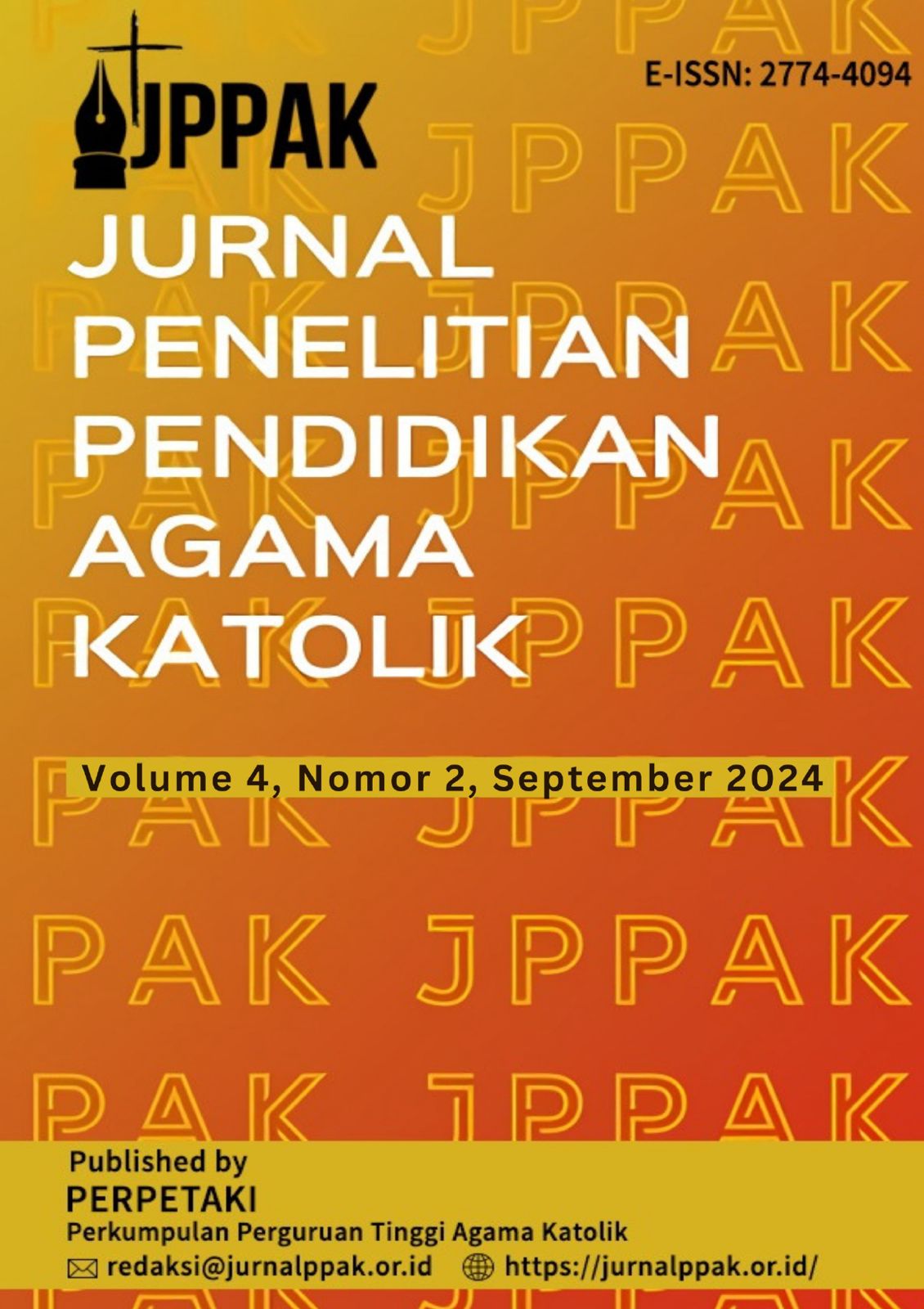Pengaruh Penggunaan Smartphone Terhadap Aktivitas Ibadat Orang Muda Katolik (OMK) di Paroki Maria Ratu Pencinta Damai Lolah
DOI:
https://doi.org/10.52110/jppak.v4i2.140Keywords:
Smartphone, Worship ActivitiesAbstract
Usage smartphone have positive and negative influences. Use which are not in accordance with their function can have an impact on OMK worship activities at Maria Ratu Lolah Peace Lolah Parish. This research is to find out how to usesmartphone OMK, OMK worship activities, and how big the influence of usesmartphone on OMK worship activities at Maria Ratu Lolah Peace Lolah Parish. The method used for this research is quantitative research. The respondents were all OMK in Lolah Mary Queen Peace Parish which was determined by the Slovin formula so that the total number of respondents was 175 OMK with a total of 310 OMK. The research instrument used is by distributing questionnaires or questionnaires with alternative answers to variable X (usesmartphone) namely Strongly Agree (4), Agree (3), Disagree (2), and Disagree (1) and alternative answers to variable Y (worship activities) namely Always (4), Often (3), Rarely (2) , and Never (1). Simple linear regression analysis. The research results obtained show that the usesmartphone OMK obtained a calculated coefficient of 0.86 and was in the very good category, OMK worship activities obtained a calculated coefficient of 0.90 and were in a very good category as well as the influence of usingsmartphone towards worship activities with a determination coefficient of 0.467. From these results, by looking at the coefficient interval, it is categorized as moderate with a percentage of 46% and 54% influenced by other factors.
Downloads
##submission.downloads##
Submitted
Accepted
Published
How to Cite
Issue
Section
License
Copyright (c) 2024 Tasya Lucia Kandow, Adrianus Dalia, Marianus Muharli Mua

This work is licensed under a Creative Commons Attribution-ShareAlike 4.0 International License.
Copyright Notice and Permissions
Jurnal Penelitian Pendidikan Agama Katolik offers immediate open access to all its content on the principle to make researches freely available to the public, especially to the scholars, to support greater global exchanges of knowledge. This journal encourages all scholarly authors to allow their research openly available, free access and without time restrictions.
All articles published Open Access will be immediately and permanently free for everyone to read and download. Under the CC BY-SA 4.0 license, authors retain ownership of the copyright for their article, however authors grant others permission to use the content of publications in Jurnal Penelitian Pendidikan Agama Katolik (JPPAK) in whole or in part provided that the original work is properly cited. Users (redistributors) of Jurnal Penelitian Pendidikan Agama Katolik (JPPAK) are required to cite the original source by including at least: the full title of the article, the author's or authors' full name(s), JPPAK as the initial source of publication, year of publication and volume number using a propriate citing method.
Copyright encompasses exclusive rights to reproduce and deliver the article in all form and media, including reprints, photographs, microfilms and any other similar reproductions, as well as translations. The reproduction of any part of this journal, its storage in databases and its transmission by any form or media, such as electronic, electrostatic and mechanical copies, photocopies, recordings, magnetic media is prohibited without consent of Jurnal Penelitian Pendidikan Agama Katolik (JPPAK).
Jurnal Penelitian Pendidikan Agama Katolik (JPPAK) is licensed under a Creative Commons Attribution Share-Alike 4.0 International. (CC BY-SA 4.0)
Authors who publish with Jurnal Penelitian Pendidikan Agama Katolik (JPPAK) agree to the following terms:
- Authors retain copyright and grant the journal right of first publication with the work simultaneously licensed under a Creative Commons Attribution Share-Alike 4.0 International (CC BY-SA 4.0) license that allows others to share the work with an acknowledgement of the work's authorship and initial publication in this journal.
- Authors are able to enter into separate, additional contractual arrangements for the non-exclusive distribution of the journal's published version of the work (e.g., post it to an institutional repository or publish it in a book), with an acknowledgement of its initial publication in this journal.
- Authors are permitted and encouraged to post their work online (e.g., in institutional repositories or on their website) after the publication on JPPAK, as long as it not published on other OJS for it will be treated as plagiarism by plagiarism checker apps. It can lead to productive exchanges, as well as earlier and greater citation of published work (See The Effect of Open Access).












